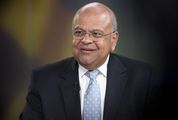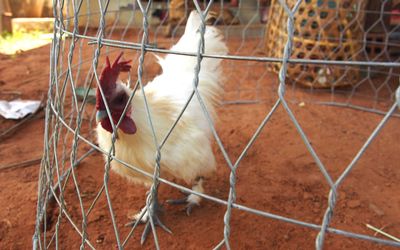PORT ELIZABETH — Poultry group Sovereign Food Investments is in for a battle to institute a controversial empowerment scheme after a group of minority shareholders including investment entities related to the principal shareholder of rival, Country Bird Holdings, put up resistance at a general meeting on Thursday.
Although Sovereign, which had irrevocable support from several institutional shareholders, received approval from 84% of shareholders voting at the meeting, the opposition of more than 15% means the scheme now needs to be approved by a court.
There could be a significant cost incurred by Sovereign as dissenting shareholders can also opt to exercise their appraisal rights. This would require a buyback of shares from the dissenter shareholders at a fair value.
Sovereign’s fair value was set at 850c per share in the scheme circular, which could infer a possible buyout cost of well more than R70m.
However, Sovereign chairman Tom Pritchard stressed that the 850c per share fair value might not be the value of appraisal rights.
"We need to apply our minds to it … directors will determine a fair price."
After the voting results were announced, representatives of Synapp International and the Buzby Trust, entities associated with Country Bird prime mover Kevin James, as well as Opportune Investments applied to take the scheme to court.
Both confirmed they had also given notice that they intended exercising their appraisal rights.
The company now has to prove to a court that, notwithstanding the majority vote, the scheme is beneficial to all shareholders.
It gives the dissenting minority shareholders the opportunity to explain to the court why they think the proposed scheme is flawed.
Minority shareholders at Thursday’s heated meeting raised concerns about the costs of the scheme, which come in at nearly R17m on a cash basis alone, and that broad-based black participation in the empowerment scheme was underwhelming.
But minority shareholder resistance at Sovereign stems from a costly bonus performance payment to senior staff last year, which shaved about 50c per share off earnings.
The performance gauge was also changed from return on assets and equity to margins without the shareholders being notified.
Opportune Investments CEO Chris Logan asked whether there was an indication of how many shareholders would exercise their appraisal rights.
Mr Pritchard said he would rather not speculate on the matter. But more than 9-million shares voted against the scheme.
The appraisal rights issue is critical to the empowerment deal. One of the conditions precedent is that Sovereign would reconsider the deal if more than 5% of shareholders exercised their appraisal rights.
The company, which has spent years building a compelling value-added poultry model, would also have to fork out cash at a delicate point in a downswing in the poultry market.
There have also been contentions — denied strenuously by Sovereign’s board on Thursday — that the empowerment scheme, which is linked to an executive buy-in, would stymie any takeover effort by creating a negative control pool.
There has been widespread speculation that Sovereign, which trades at a discount to its tangible net asset value, could be a target for larger poultry groups.
The Sovereign story took a twist at the end of last year, when Mr James, through Synapp and Buzby, increased their stake to 7.6%.
Mr James would stand to make a profitable turn on exercising the associated appraisal rights.
Country Bird has previously tilted at Sovereign, having bought a significant minority stake in it about seven years ago. Country Bird sold out of Sovereign when the company opted for a rights offer to recapitalise the company instead of entertaining takeover advances from Country Bird and the former Afgri Group.
Initially, there were queries around the presence of Synapp and Buzby at the meeting. Nonexecutive director Charles Davis noted that Mr James was associated with a competitor of Sovereign, while CEO Chris Coombes suggested Mr James’s representatives — attorney Clint Holing and shareholder activist Theo Botha — were not acting in the best interests of Sovereign.
Vunani Securities small-to mid-cap analyst Anthony Clark said the development wounded Sovereign. "I can see uncertainty … the BEE deal could now be tied up until Easter."





















Change: -1.55%
Change: -1.49%
Change: -2.49%
Change: -1.19%
Change: -1.90%
Data supplied by Profile Data
Change: 0.00%
Change: 0.00%
Change: -1.55%
Change: 0.00%
Change: 0.00%
Data supplied by Profile Data
Change: 0.02%
Change: 0.03%
Change: 0.09%
Change: 3.17%
Change: 0.35%
Data supplied by Profile Data
Change: 0.00%
Change: 0.00%
Change: 0.00%
Change: 0.00%
Change: 0.00%
Data supplied by Profile Data